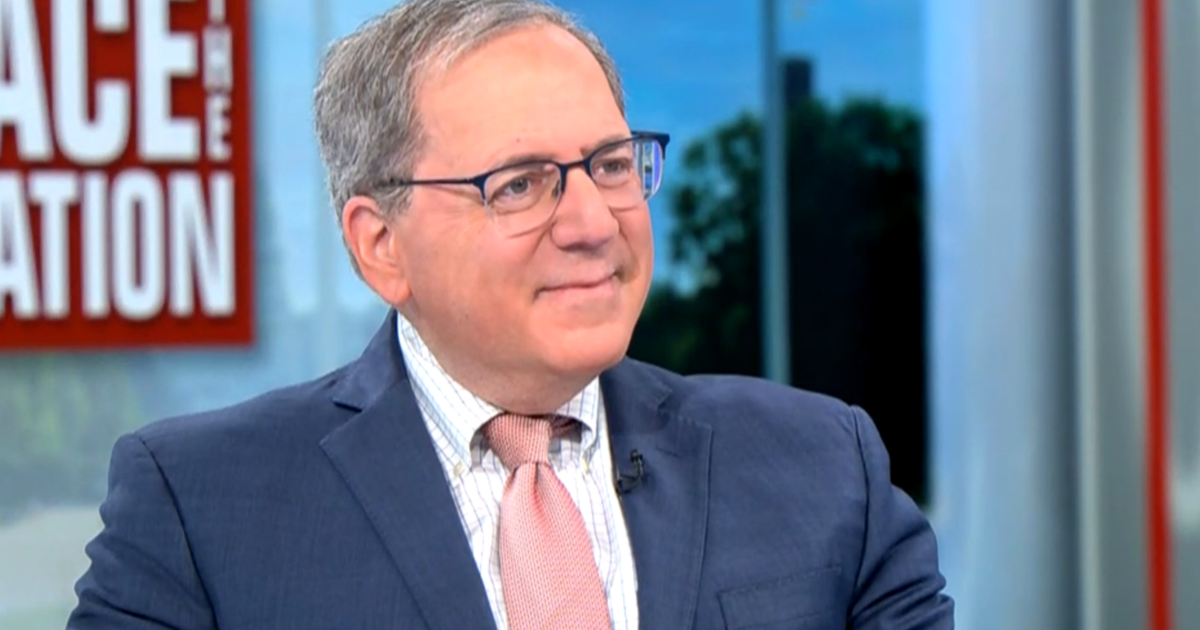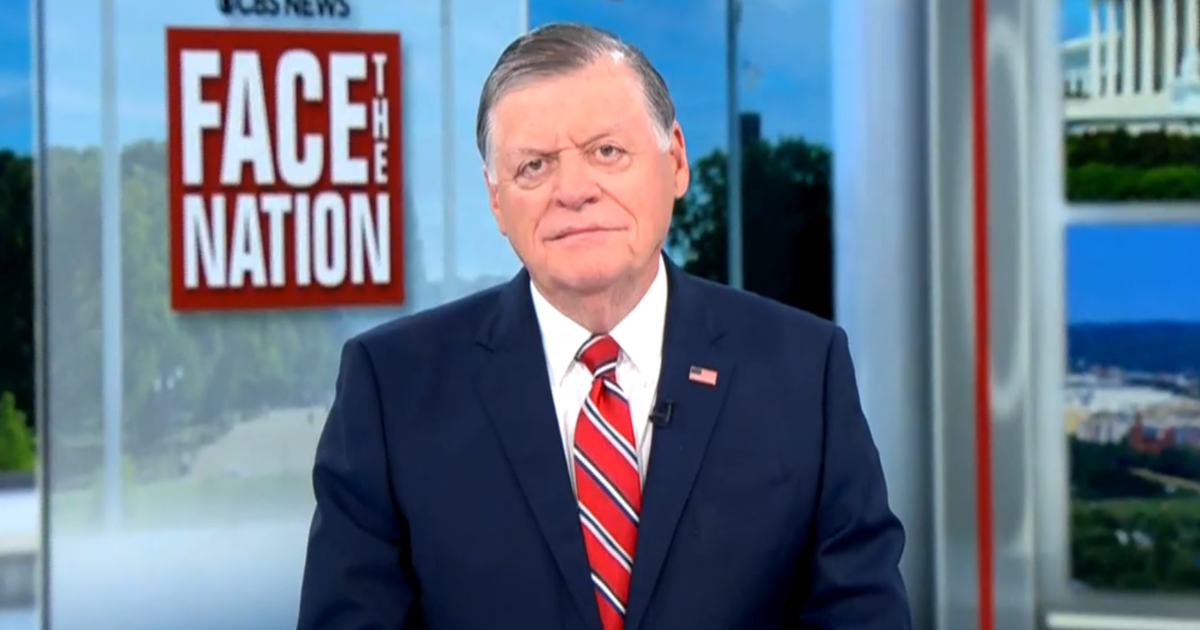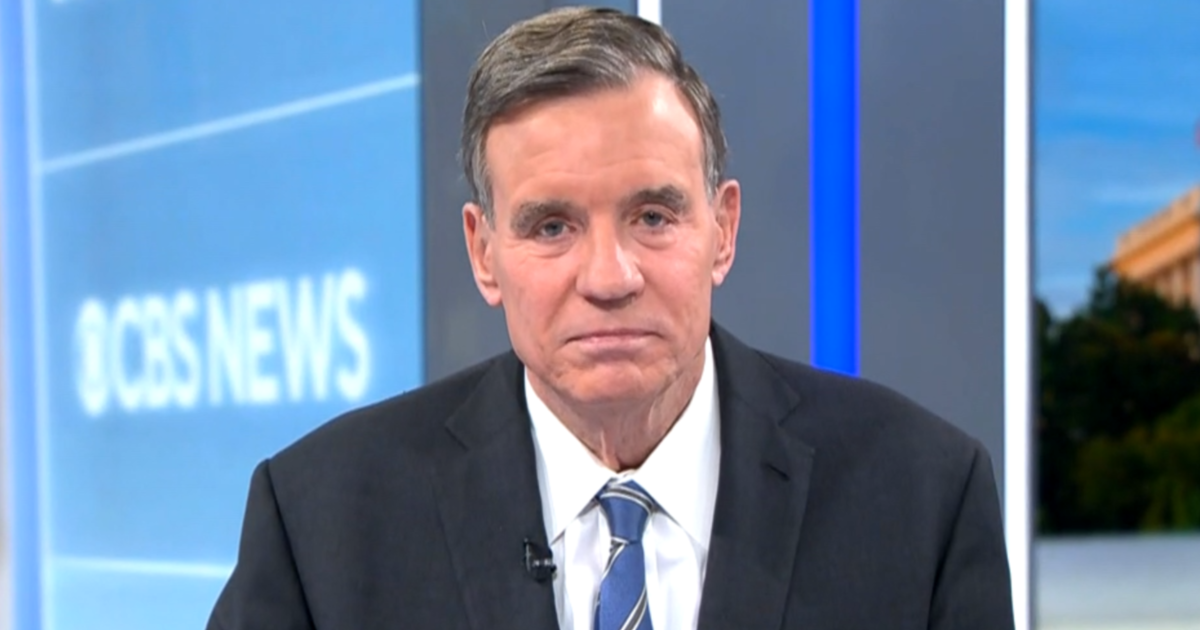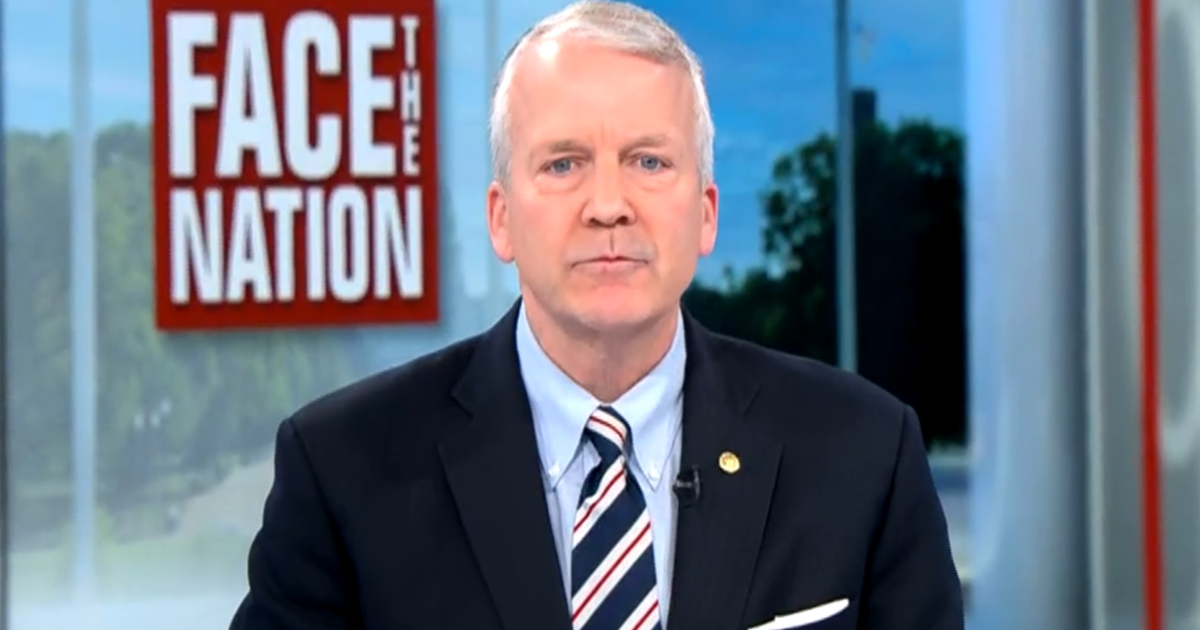Transcript: Jared Kushner on "Face the Nation," August 16, 2020
The following is a transcript of an interview with White House senior adviser Jared Kushner that aired Sunday, August 16, 2020, on "Face the Nation."
MARGARET BRENNAN: We now go to Bedminster, New Jersey, where President Trump's adviser and his son in law, Jared Kushner, join us. Good morning to you. And first off, I just want to extend our condolences to your family. I know the president's brother died yesterday.
WHITE HOUSE SENIOR ADVISER JARED KUSHNER: Thank you very much. The president loved his brother very much, and he was able to see him the day before yesterday and his brother was very proud of him. And obviously a very tough moment for the president, but he's looking forward to continuing to do great things and make his brother proud.
MARGARET BRENNAN: I'm sure. Thank you. I do want to get to some business here. Jared, you have a wide portfolio on the issue of coronavirus. On Wednesday, we had over 1,500 deaths in this country in a single day. That brings us back to the kind of rate we were at in the month of May. You heard the CDC director there projecting 200,000 deaths by Labor Day. Do you believe the administration has control of the virus? And what do you think you've done wrong?
KUSHNER: Right, so back in May, I believe the rate was about 2,500 deaths a day, so we're still below that peak. We have seen over the last two weeks that hospitalizations have come down. The president's taken a very aggressive approach, not just in the hot spots, but also in what we call the ember cities to push all the different measures that we can take, like wearing a mask, social distancing, using best practice. But most importantly, the president's really advanced the use of a lot of therapeutics, which is bringing the case fatality rate down better, which has been a good thing and obviously accelerating a vaccine. The fastest vaccine ever to a Phase 3 trial was 13 months. And President Trump did it here in four months. And we have six different candidates that are entering Phase 3 trials. We're simultaneously mass producing it. So at some point we will get to the other end of this pandemic. And in the meantime, you know, all different countries, all different states are trying different things. As the federal government, we've been trying to share best practices. We've been speaking with a lot of governors and we've been making sure that all the different states have all the resources they need in order to take a tailored strategy, given the data that they see on the ground.
MARGARET BRENNAN: I want to know, though, what is the actual conviction of the task force at this point? Is it to contain the spread of the virus or is it to, as Dr. Atlas, the new advisor to the task force, says, really just isolate and protect vulnerable, high risk individuals?
KUSHNER: Well, look, we know a lot more than we did five months ago when we- when we did 15 days to slow the spread. It wasn't 15 days to get rid of the- the virus. It was a global pandemic. It was infecting all over the country. It was to slow the spread and make sure we had the resources we need. Now, we have a lot more knowledge about who the virus impacts, in- in which ways. And we've created a lot of ways to prevent it from spreading in certain places. And we've created a lot of ways to help people who do get it have- have a much more benign experience with it. So we're entering a much more strategic approach, which we're going to be taking until we do have a fully approved and safe vaccine that we can widely distribute. We're trying to use all the resources we can to optimize for the best results possible. But again, even Dr. Fauci this week said that lockdowns are not the answer, --
MARGARET BRENNAN: Right.
KUSHNER: --and we need to find a way through this unprecedented time to use the resources we need in order to live as normal life as possible while taking the restrictions that will help us save as many people as possible and to keep our economy as healthy as possible so that when this is over, we haven't destroyed our country in order to- in order to get through it.
MARGARET BRENNAN: Right. But what is the strategy in terms of- is- are you looking at containing? Because if you listen to Dr. Atlas, this new advisor, he has talked about really just protecting the vulnerable. But according to the CDC, 45% of adults, that's nearly half of Americans, have comorbidities. That's diabetes, that's asthma. That's just being overweight. A huge portion of the United States is vulnerable here. Do you think you have control of the virus?
KUSHNER: Yeah, but if you look at the people who unfortunately have succumbed to the virus, most of them are over 70 and most of them have been in nursing homes. So we've been doubling and tripling down on getting the point of care tests to the nursing homes, getting the right PPE to the nursing homes. But, MARGARET, look, I came on today to talk about the historic breakthrough that the president achieved for peace in the Middle East. It's the first peace agreement in 26 years. And I will say that this has been a strategy we've been working on for the last three and a half years--
MARGARET BRENNAN: Well, I do- I do want to talk to you about that, Jared.
KUSHNER: And every step along the way I have faced criticism for these actions. The president faced criticism for these actions.
MARGARET BRENNAN: Right.
KUSHNER: And so the president takes a common sense approach. He's based on science. He's based on data, not based on conventional thinking. And again, I think that you're seeing the president continue to work with the governors and everyone to bring forward the best policies in order to- to get the best outcome possible with the virus.
MARGARET BRENNAN: OK, before we move on, though, you're a parent. There are a lot of nervous parents out there, as you just heard. Are you sending your children back to in-person education in a classroom?
KUSHNER: Absolutely, the- the- the- the rate, again, based on the data and the science that I've been given--
MARGARET BRENNAN: You're not concerned about exposure?
KUSHNER: No, because again, you know, children have a- a six times higher chance to die from the flu than from the coronavirus. So based on the data I've seen, I don't believe that that's a risk. Again, this virus impacts different people in different ways. We know a lot more now than we did. And assuming- our school is not opening up five days a week, I wish they were, but we absolutely will be sending our kids back to school and I have no fear in doing so.
MARGARET BRENNAN: I want to quickly ask you about the election before we go to the Middle East, because you do play a key role as an adviser. The Postal Service sent letters, as you note, to about 46 states saying that mail-in ballots may not arrive in time by Election Day. You were deeply involved in 2016. Back in that- back then, President Trump performed better than his Democratic rival with voters 65 and over. These are people who would count as- as vulnerable and might be nervous about in-person voting. Are you worried you're going to disenfranchise some of your own voters in the next election by not giving emergency aid to the Postal Service now?
KUSHNER: OK, again, I hope we'll get to talk about Middle East peace in a minute, but I'll- I'll give you a quick answer on that. Number one, Dr. Fauci said this week that there should be no fear for people to go out and vote in person. Number two, I have a friend in New Jersey just got married. That person got sent two ballots, one in her old name and one in her new name. I think what President Trump wants is a fair election. If you have a tried and true system where they've been doing it like absentee ballots, where there's some security mechanisms built in, that's totally acceptable. That's a great thing to do. But you can't have a new system being tried where there's not the right time to do it and expect them to get it right and then expect that Americans will have confidence in the elections. The last election, you know, people went crazy for a couple of years based on the Russian spending $100,000 on Facebook, saying the elections were --
MARGARET BRENNAN: But you're not afraid this could backfire on your own campaign?
KUSHNER: --undermined. Imagine what people can do- look, we have a great operation. We're very confident. We're in much better shape now than we were in 2016. We have over a million and half volunteers in the field, 1,500 paid staff on board in all the different states. We're playing in states that we didn't win last time. We think we have a great opportunity. And again, just like President Trump achieved a historic Middle East deal, which I hope we'll get to talk about, he continues to defy odds and accomplish things.
MARGARET BRENNAN: Yeah.
KUSHNER: And the American people are tired of politicians who come to Washington, don't get anything done. They want people who, like President Trump, who may not , you know, do things in a conventional way,--
MARGARET BRENNAN: Well
KUSHNER: --but he delivers results. And that's what the people want from their leaders.
MARGARET BRENNAN: Well, and- and many of those voters would like to vote safely by mail if they're not comfortable going to a polling facility. On the Middle East, there were hostilities overnight in Gaza. There were Israeli airstrikes. Palestinian militants fired off rockets. Doesn't this underscore that the core conflict in the region remains unaddressed with what you just negotiated? And what is your response? I mean, do you have outreach right now to the Palestinian Authority and to the region?
KUSHNER: OK, well- well that's a very negative framing. Let me take one minute before we go to that question to basically say, look, in the last 26 years, this is the first peace agreement that we've had between Israel and the United Arab Emirates, between an Arab country and the Jewish country, coming together, putting old conflicts behind. There's still a lot of people in the region who A. want to be stuck--
MARGARET BRENNAN: A hundred percent, that is a significant breakthrough.
KUSHNER: Thank you. I said there a lot of people who want to be--
MARGARET BRENNAN: I am speaking not about the UAE and Israel but about the escalation overnight that just happened.
KUSHNER: Yeah, I'll get to that. So- so- so to address that, number one is you have a lot of people in the region who A. want to be stuck in the past. They want to cause instability. They want the region to be stuck in old conflicts. President Trump has refused to allow those people to dictate the agenda. Instead, he's tried to pull people together around shared interests. People in the region want security, and they want the ability to have economic prosperity. And that's what President Trump has realigned the region around. Look, these are people, you know, Hamas and people in Gaza, they've had the same business plan for the last ten years. And the international community has been stupid enough to allow them to get away with it. You know, they shoot bombs into--
MARGARET BRENNAN: So there's no outreach right now to stop this?
KUSHNER: Look, I think that we're dealing with Israel, and they'll, you know, deal with it accordingly. This flares up every now and then. But what we've done is we've outreached to Palestinians. We've put a big plan on the table. The people of Gaza, you know, are held captive now by their leaders in Hamas, who are basically a terror organization. But we have a plan on the table if they're willing to commit to peace and they're willing to have a real security environment that's verifiable and actually long lasting, not some of the BS things that have been done in the past then we have an economic plan that can go in. It can reduce the poverty rate there by 50%, create over a million jobs, double their GDP. It's got a lot of geographical advantages and can be quite thriving. But unfortunately, the Palestinian people are hostages to very poor leadership, but we can't allow that to hold the whole region back. And what President Trump's done is he hasn't focused his strategy on failed conventional thinking of the past. He's tried to realign it around future thinking. And again,--
MARGARET BRENNAN: Yeah.
KUSHNER: -- this goes to all the things we were talking about. President Trump is a business guy. He's a leader. He's a deal maker. What he does is he looks at things rationally with common sense--
MARGARET BRENNAN: Yeah.
KUSHNER: --and he pushes them forward in a way that makes sense. And that's how he delivers results like we did on this historic agreement.
MARGARET BRENNAN: All right. Jared Kushner joining us from New Jersey this morning. Thank you. We will be back in one minute with Chicago's mayor, Lori Lightfoot. Stay with us.



